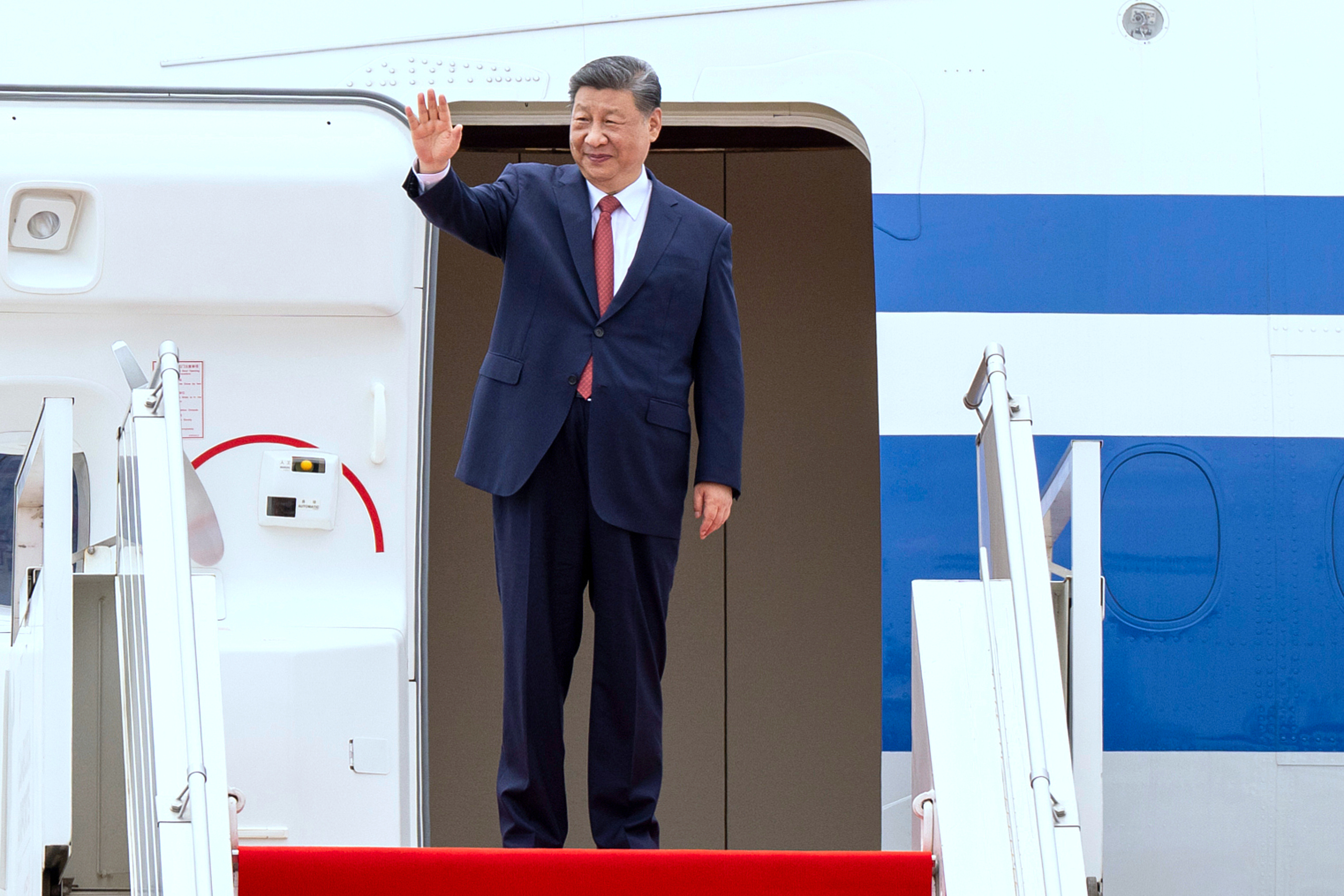At China's largest trade fair, the Canton Fair, currently taking place this week in an exhibition center the size of 200 football fields in the southern city of Guangzhou, many Chinese exporters acknowledge being very concerned because their American customers' orders have been frozen due to the high tariffs imposed by Donald Trump (145%), with shipments stranded at ports.
While exporters are trying to take advantage of the showcase of a mega fair with over 30,000 exhibitors to seek alternative markets for the products that used to go to the United States, a patriotic trend is surging in various ways in the giant Asian country in response to Trump's trade war shocks. If over the past weekend Chinese social media rallied behind several boycott campaigns against American products, now the game has also moved to Western networks with the viralization of dozens of videos showing production processes to counter old prejudices that "Made in China" implies poor quality.
Many factory owners in China have started to reveal in videos how the supply chain works for luxury fashion brands, explaining that many products from Gucci, Prada, or Louis Vuitton come from the same factories where they also produce other cheaper and less known brands. Within China, it is no secret that a portion of this quality production remains, without the corresponding label, in the local market and can easily be found in the back rooms of large shopping centers.
Now, some manufacturers, through e-commerce platforms, have started promoting direct sales of luxury items to consumers, without the brand logos, at significantly lower prices. In one of the videos, a supplier of Hermes Birkin bags, which have a market price of over 30,000 euros, claimed that the production cost is around 1,300 euros, with the manufacturer making a minimal profit margin, while the luxury brand keeps most of the profits. "More than 90% of the price corresponds to the brand's label. But if you are looking for a bag of the same quality, made with the same material, and don't mind it not having the logo, you can buy directly from our factory," they advertised.
A luxury footwear manufacturer addressed American buyers in another TikTok video: "Even with import tariffs and shipping costs, buying from us as manufacturers is still much cheaper than buying the same products through American corporations or European companies based in the US. Direct sales could become the only affordable option for luxury items if tariffs continue to rise."
In Beijing, where they are promoting all these campaigns, they continue to focus on delivering a well-crafted message that is resonating deeply within the Asian superpower: while the rest of the world bows to Trump, lining up to negotiate tariffs in Washington, China stands its ground and brings out some of its commercial weapons to pressure Washington.
The most recent example is when Chinese airlines were instructed on Tuesday to stop accepting more Boeing deliveries and to halt purchases from US companies of aircraft equipment and parts; or when exports were restricted for some critical minerals, essential for US companies to manufacture many technological products, or when it was announced that the number of Hollywood movies screened in the world's second-largest film market would be reduced.
"But there is something equally or even more important than all this: the rest of the world, starting with many of the traditional US allies, is finally opening their eyes and realizing that China is not the evil power that the West has been painting for years," a senior official from the Chinese Ministry of Foreign Affairs explained in a phone call. "For a long time, the economies of China and the US have maintained a very strong connection and mutual dependence. American companies came here to set up factories with cheap labor, produce cheaply, and then sell at high prices. As China opened up to the world and became the global factory, it invested all the money that came in in building infrastructure and lifting millions of people out of poverty."
While state media fuel boycott campaigns and the promotion of domestic products, Beijing's leaders celebrate the positive economic data from the first quarter, before the direct impact of the trade war: GDP grew by 5.4%, above expectations, and exports also rose by 6.4% year-on-year.
From Washington, observing how their rival does not ease up in the exchange of blows, they have reiterated their openness to reaching an agreement with China. The same was stated on Wednesday by a Chinese government spokesperson. But for now, neither of the two superpowers is taking the initiative to pick up the phone. When this happens, China already has a new negotiator, an economist named Li Chenggang (58 years old), former ambassador to the World Trade Organization (WTO), who has just been appointed as the international trade representative at the Ministry of Commerce.
